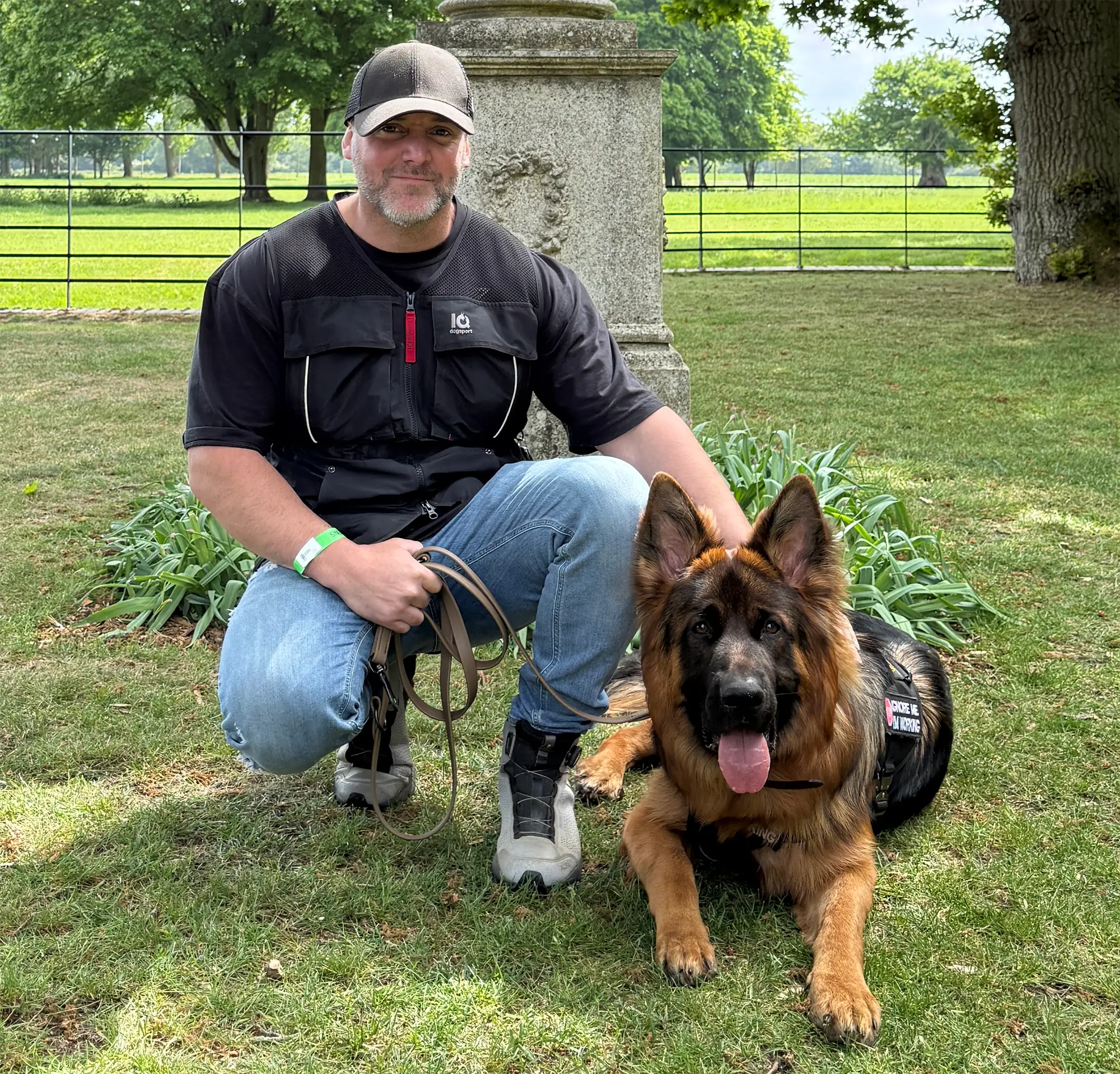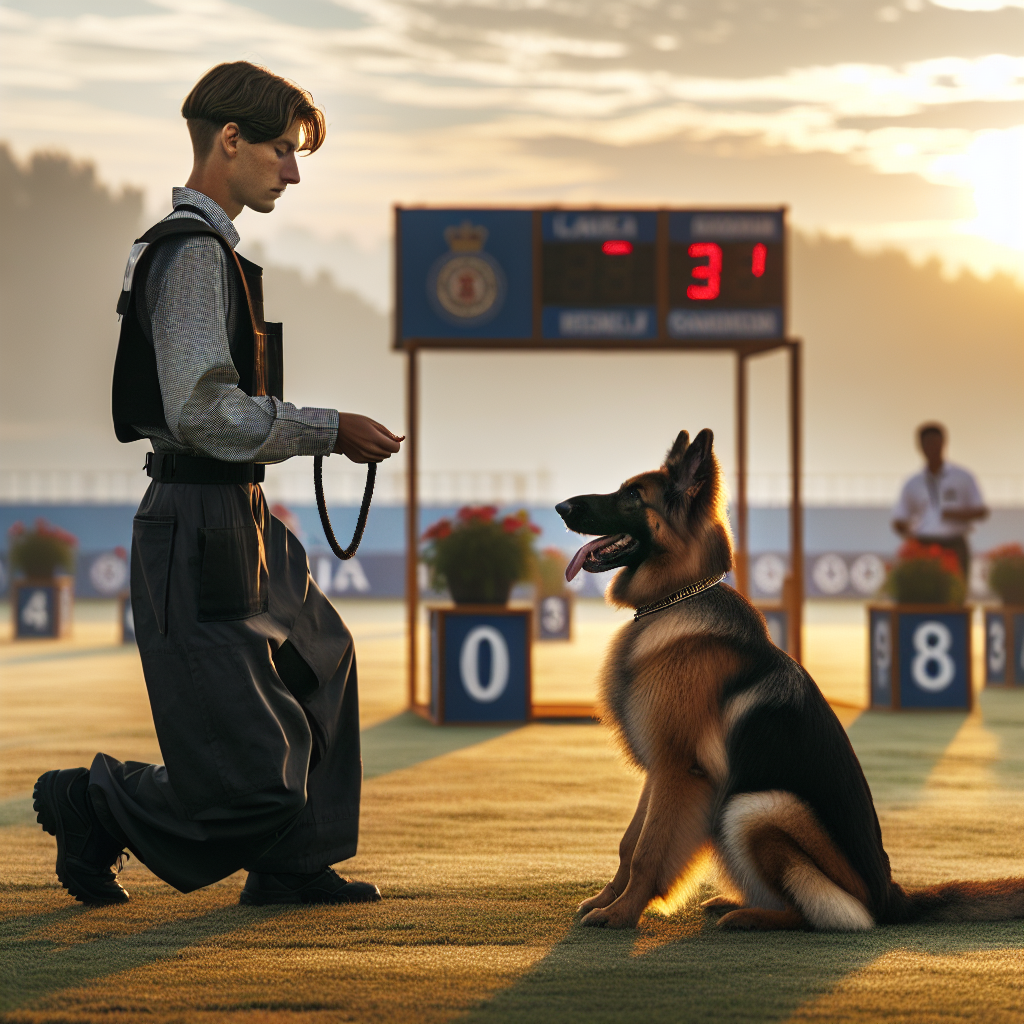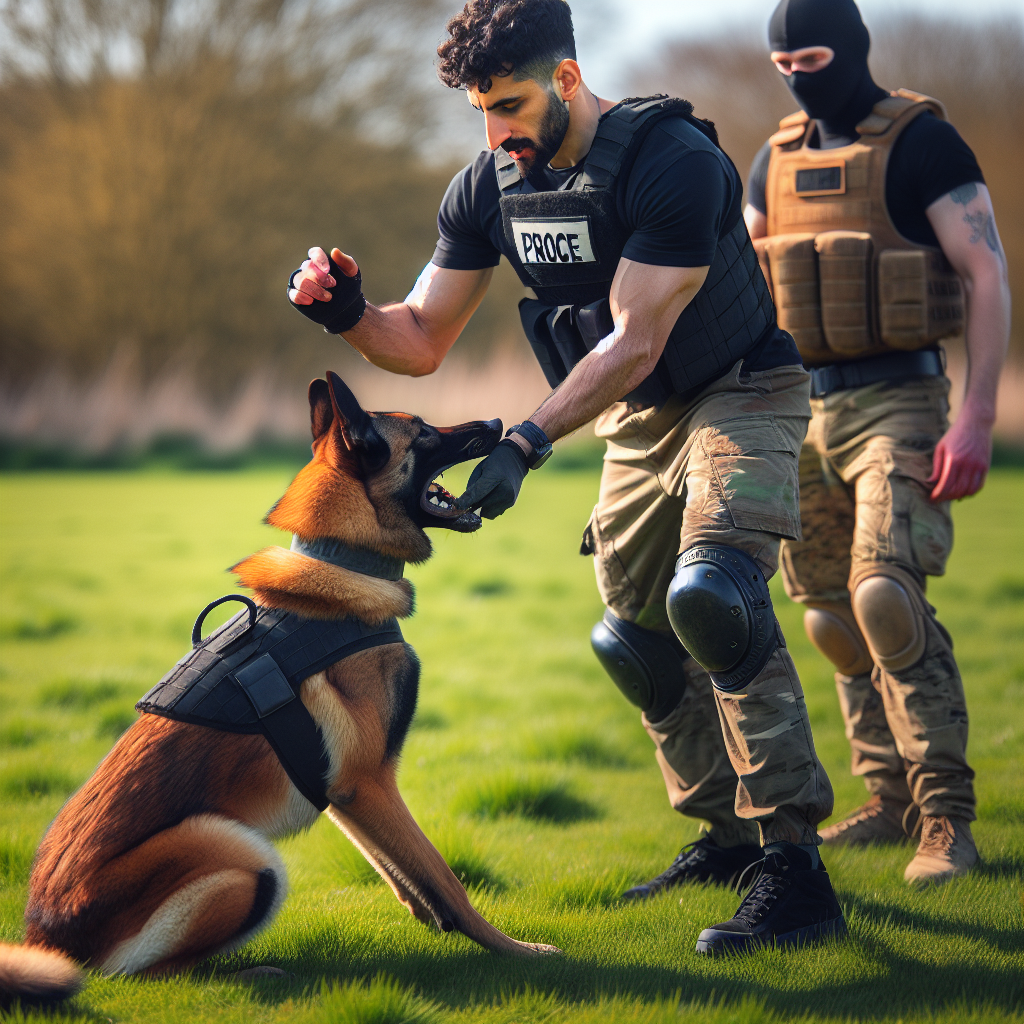Progression Testing Before Trial

Progression Testing Before Trial
Progression testing before trial is how we turn trained behaviours into reliable results on the day. At Smart Dog Training we use the Smart Method to verify every layer of your dog’s skills so there are no surprises in the ring. This structured system was built through years of competition and real world training. It ensures calm, accurate, and confident performance. You will work with a certified Smart Master Dog Trainer who guides you through each test and decision point. With progression testing before trial you remove guesswork and enter only when you are ready to succeed.
Why Progression Testing Matters
Training alone does not guarantee a clean performance. Your dog must show understanding under pressure, around distractions, and with you under stress. Progression testing before trial maps that journey. We break complex routines into smaller tests. We score each test. Then we progress only when your dog can perform with consistency. This protects your confidence and your dog’s mindset, and it builds trust through fair structure.
The Smart Method Foundation
Every stage of progression testing before trial follows the Smart Method, our proprietary system:
- Clarity. We use precise commands and markers so the dog knows exactly what to do.
- Pressure and Release. Fair guidance is paired with clear release and reward to build accountability without conflict.
- Motivation. Rewards are layered to keep engagement high and the dog willing to work.
- Progression. We add distraction, duration, and difficulty only when the dog is ready.
- Trust. Training strengthens the bond so the dog stays calm and confident.
This balance of motivation, structure, and accountability is what defines Smart Dog Training. It is the reason our clients earn reliable results in real life and in sport.
What We Measure
Our progression testing before trial checks five core areas:
- Precision. Position, heel mechanics, fronts, finishes, retrieves, and grips where relevant.
- Fluency. Response speed and latency from the first cue to the last behaviour in a chain.
- Endurance. Ability to hold accuracy and attitude across a full routine.
- Generalisation. Performance in new places, with new helpers, noises, and smells.
- Stability under pressure. Performance when arousal rises or the handler makes an error.
Building a Progression Testing Plan
We design progression testing before trial as a ladder. Each rung proves a single element. We keep sessions short and focused so the dog leaves successful. We reset criteria if success drops. This keeps learning clean.
Phase 1 Clarity Tests
Clarity is our non negotiable start point. In this phase of progression testing before trial we verify that the dog understands each cue in a low distraction space. We test markers for reward and release. We map positions and movement patterns with simple setups.
- Response speed. Dog responds within one second to known cues.
- Marker understanding. Reward markers and release words produce consistent behaviours.
- Position accuracy. Sit, down, stand, heel position, fronts, and finishes meet criteria five times in a row.
If any piece is unclear, we return to teaching. No pressure is added until clarity is strong.
Phase 2 Motivation and Engagement Tests
We want a dog that wants to work. In progression testing before trial we build value for tasks and the ring routine. We test engagement with no food in hand and rewards delivered from the handler or a station.
- Start button behaviour. Dog offers focus at heel and holds it for ten seconds before cue.
- Work to earn. Dog performs two to four behaviours before a reward without stress.
- Neutral to rewards. Dog can see a placed toy or food and still complete the task.
We rotate food, toy, and social rewards to prevent dependency on a single reinforcer.
Phase 3 Pressure and Release Accountability Tests
Fair pressure teaches responsibility and removes conflict. In progression testing before trial we use the Smart Method approach to guide the dog through mild challenge, then release to reward for compliance. This builds confidence and reliability.
- Reset without reward. On an error the dog calmly resets and repeats the rep to earn the reward.
- Leash information. Light leash guidance is followed, and the dog releases pressure on its own.
- Impulse control. Dog holds criteria through handler movement and reward presentation.
This phase avoids nagging. We guide once, then the dog chooses correctly to earn the release.
Phase 4 Distraction and Duration Proofing
Real trials are busy. During progression testing before trial we add movement, sounds, and handler stress drills. We extend the length of tasks while keeping precision high.
- Duration. Increase holding time for positions in small steps and reward in position.
- Distractions. People walking, clatter, smells, and other dogs at controlled distances.
- Dual tasking. Handler reads a card or counts aloud to simulate divided attention.
We test for clean behaviour at three difficulty levels before moving on.
Phase 5 Generalisation Across Environments
Your dog must work anywhere. Progression testing before trial includes sessions in new indoor and outdoor spaces. We vary surfaces and weather. We swap helpers and decoys where relevant. We change the ring entry and exit points so the routine feels familiar yet new.
- New place rule. Three successful sessions in three different locations.
- New person rule. Dog performs with a different steward or helper with no loss of clarity.
- Surface rule. Grass, rubber, and concrete seen before trial day.
Phase 6 Stress and Arousal Management
We cannot remove stress. We train the dog and handler to manage it. In progression testing before trial we practice arousal up and arousal down. We test warm up timing and recovery drills.
- Up and down. Dog can go from high play to stillness and back without losing control.
- Breathing drills. Handler uses two slow breaths and a reset cue to steady the team.
- Recovery clock. Dog returns to baseline within one minute after a spike.
Phase 7 Behaviour Chains and Ring Routines
Trials test chains, not single skills. We build and test the chain step by step. In progression testing before trial we add one behaviour at a time, then test the whole routine under mild pressure.
- Block chaining. Build pairs, then trios, then full sequences with variable rewards.
- No reward run. One clean run of a short chain without a reward, then jackpot after exit.
- Handler choreography. Footwork, cues, and eye lines are rehearsed and scored.
Phase 8 Mock Trial and Scoring
We stage a full mock trial. There are stewards, a running order, and a judge role. During progression testing before trial we use our Smart scoring model that values both accuracy and attitude. We video every run for review.
- One chance rule. Single attempt per exercise to simulate trial pressure.
- Ring economy. No extra cues, no fidgeting, clean transitions.
- Exit protocol. Reward party after the ring to protect ring value without breaking rules.
Readiness Criteria and Scoring Model
Progression testing before trial ends with a clear decision. Enter or delay. We use a simple readiness score out of 100 that balances precision, fluency, generalisation, and stability under pressure.
- Precision 30 points. Position, heel mechanics, cue response, and clean grips where relevant.
- Fluency 20 points. Speed, latency, and smooth transitions.
- Generalisation 20 points. New places, new people, and new surfaces with no loss.
- Stability 20 points. Distractions, arousal changes, and handler error recovery.
- Attitude 10 points. Focus, enthusiasm, and calm between exercises.
We recommend entering when your average across three mock trials is 85 or higher with no single category under 16. This keeps standards high and protects the dog.
Red Flags That Delay Trial Entry
- Slow or sticky responses to known cues.
- Loss of position or wide turns in heelwork.
- Reward seeking in the ring or scanning the environment.
- Stress signs such as yawning, scratching, or lip licking during work.
- Handler over talking or stacking cues to get behaviour.
- Inconsistent grips or outs where protection work is relevant.
If you see these during progression testing before trial, we adjust the plan and rebuild clarity and motivation first.
Handler Preparation and Handling Errors
Handler performance drives results. We coach you to be clear, calm, and consistent. During progression testing before trial we track handler errors and fix them.
- Cue timing. Cues come after the picture is right, not during a turn or step change.
- Marker timing. Reward markers land at the exact moment of correct behaviour.
- Body language. Neutral shoulders and steady gaze help the dog stay centred.
- Ring etiquette. Clean heeling lines, correct halts, smooth leash management at the start and end.
Your Smart Master Dog Trainer will rehearse your entire routine with you until your actions are automatic and calm.
Equipment, Fitness, and Welfare Checks
We never risk the dog. Progression testing before trial includes a welfare checklist.
- Equipment fit. Collars and harnesses fit well and do not rub. Leash grip is secure.
- Body comfort. Joints, pads, and coat checked before and after sessions.
- Warm up plan. Five to ten minutes of movement, focus games, and position primes.
- Cool down plan. Light movement, sniffing, and water to bring arousal down.
Healthy dogs learn better and perform with confidence.
Data Tracking and Review Loops
What gets measured gets better. We log each step of progression testing before trial.
- Session notes. Criteria, outcomes, and next steps.
- Video clips. Key reps marked for review.
- Score trends. Weekly averages for precision and attitude.
With clear data, decisions feel easy. We know when to push and when to pause.
Common Mistakes in Progression Testing Before Trial
- Skipping clarity. Rushing to distraction before the dog truly understands.
- Over training the day before. Tired bodies and minds do not perform.
- Reward at the wrong time. Paying random behaviour confuses the picture.
- Changing criteria too often. The dog never learns what earns success.
- Entering too soon. A poor early experience can set you back months.
Our structure prevents these mistakes. Smart Dog Training gives you a tested path to reliable results.
Case Study From Chaotic to Calm
A young herding breed arrived with big drive and scattered focus. Heelwork was wide, downs were slow, and the dog fixated on the environment. We applied progression testing before trial using the Smart Method:
- Week 1 to 2. Clarity and marker work cleaned positions and built reward understanding.
- Week 3 to 4. Engagement games and short chains produced fast responses without luring.
- Week 5 to 6. Pressure and release built responsibility in motion and halts.
- Week 7. Generalisation across three new venues and two new helpers.
- Week 8. Mock trial with a 90 score and clean attitude.
The team entered their first event and delivered a calm, precise round. The handler reported feeling in control for the first time. That is the power of progression testing before trial when guided by a Smart Master Dog Trainer.
Ready to turn your dog’s behaviour around? Book a Free Assessment and connect with a certified Smart Master Dog Trainer available across the UK.
Ring Day Runbook
Your ring day should feel familiar. We build a simple runbook during progression testing before trial so you know exactly what to do.
- Arrival. Park, potty break, and a five minute walk.
- Check in. Confirm running order and ring layout.
- Warm up. Three focus reps, two movement reps, one position hold, then rest.
- Staging. Dog in a calm hold position while you breathe and review cues.
- Entry. Start button behaviour, then the first cue within three seconds.
- Exit. Leave the ring and party with a planned reward away from the gate.
This simple plan keeps handler and dog calm and connected.
How Smart Dog Training Supports You
Smart Dog Training trains for life and for results. Our trainers use progression testing before trial to deliver reliable, real world obedience and strong ring performance. You get:
- Structured plans that match your dog and your goals.
- Clear markers, fair pressure and release, and high motivation.
- Regular mock trials with scoring and video review.
- Support through nerves, setbacks, and success.
FAQs
What is progression testing before trial
It is a structured series of tests that prove each skill under rising difficulty. We verify clarity, build motivation, add fair accountability, and then generalise across places and pressures. You enter only when the data says you are ready.
How long does progression testing before trial take
Most teams need six to ten weeks of focused work if the core skills are trained. Dogs with big gaps in clarity or confidence may need longer. We move as fast as the dog can stay successful.
How do I know when to enter a trial
Use our readiness score. When your dog averages 85 or higher across three mock trials, with no category below 16, you are ready. If numbers dip, continue progression testing before trial for another week and retest.
My dog is perfect at home but struggles in new places. What should I do
Prioritise generalisation. Train in three new locations with simple criteria. Reward often and keep sessions short. Then weave those gains back into progression testing before trial.
Can rewards ruin ring performance
No, when used correctly. We remove visible rewards in the ring but pay after the exit. In training we use variable rewards to build resilience. This keeps attitude high without creating reward chasing in the ring.
What if my dog shuts down under pressure
We lower criteria, restore motivation, and rebuild with fair pressure and release. We also train handler breathing and recovery drills. With the Smart Method and patient progression testing before trial most dogs regain confidence.
Do I need a professional to run these tests
You will progress faster and safer with a certified Smart Master Dog Trainer. They will set clean criteria, correct handler habits, and pace your plan with care and precision.
Conclusion and Next Steps
Progression testing before trial turns practice into proof. With the Smart Method you build clarity, add fair accountability, fuel motivation, and then test under real world pressures. The result is a team that enters the ring calm and ready. If you want a trusted path to reliable performance, we are here to lead you through it.
Your dog deserves training that truly works. With certified Smart Master Dog Trainers (SMDTs) nationwide, you'll get proven results backed by the UK's most trusted dog training network. Find a Trainer Near You



